
Pin on Grammar Worksheet and Exercises
10 Examples of Countable Nouns. There are twenty books on the bookshelf. I drank a glass of fresh juice. There are many animals in this zoo. The monkeys were eating bananas. There was no magazine on the table. I took an apple and some grapes in the morning. There are 9057 public libraries in the United States.
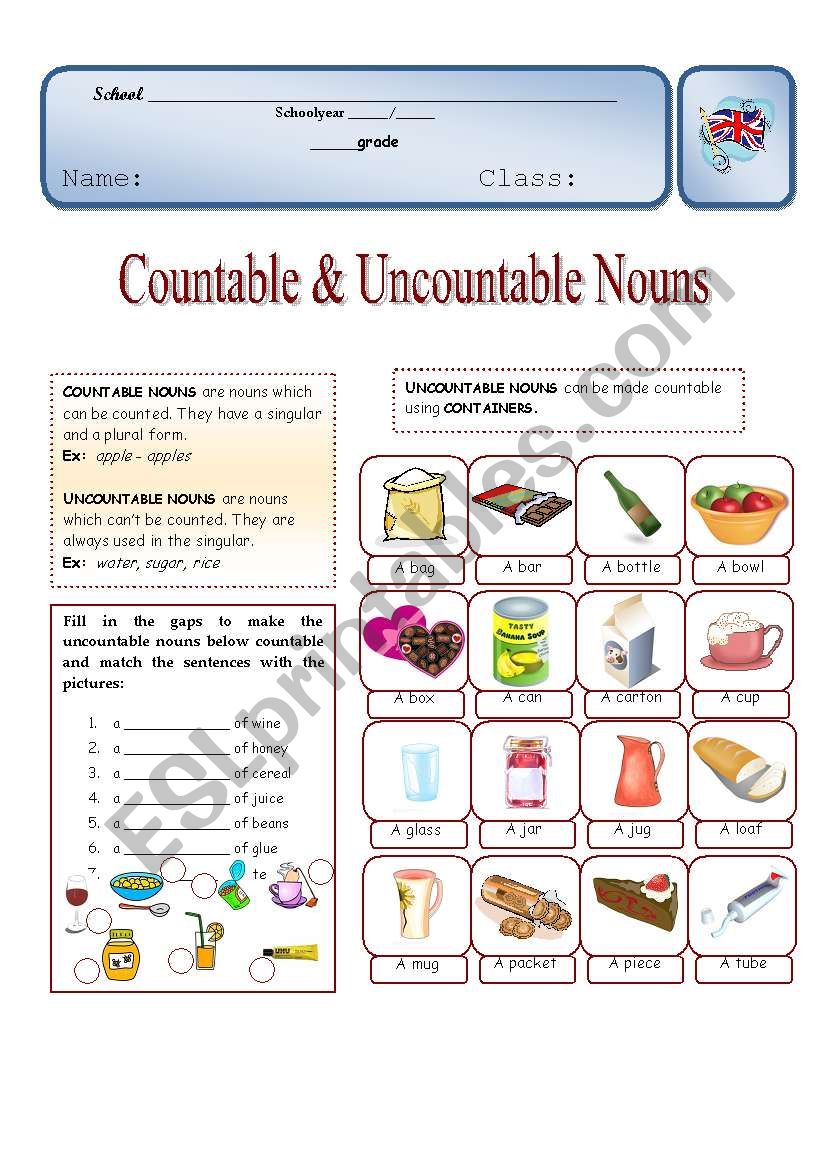
Review Of Countable And Uncountable Nouns Gambaran
EnglishClub: Learn English: Grammar: Nouns: Countable Nouns: Uncountable Nouns Uncountable Nouns. Unlike countable nouns, uncountable nouns are substances, concepts etc that we cannot divide into separate elements. We cannot "count" them. For example, we cannot count "milk". We can count "bottles of milk" or "litres of milk", but we cannot count "milk" itself.

Countables and Uncountables English Study Here
Adjectives with Countable and Uncountable Nouns The Basic Rules: Count and Noncount Nouns. A count noun is one that can be expressed in plural form, usually with an "s." For example, "cat—cats," "season—seasons," "student—students." A noncount noun is one that usually cannot be expressed in a plural form.
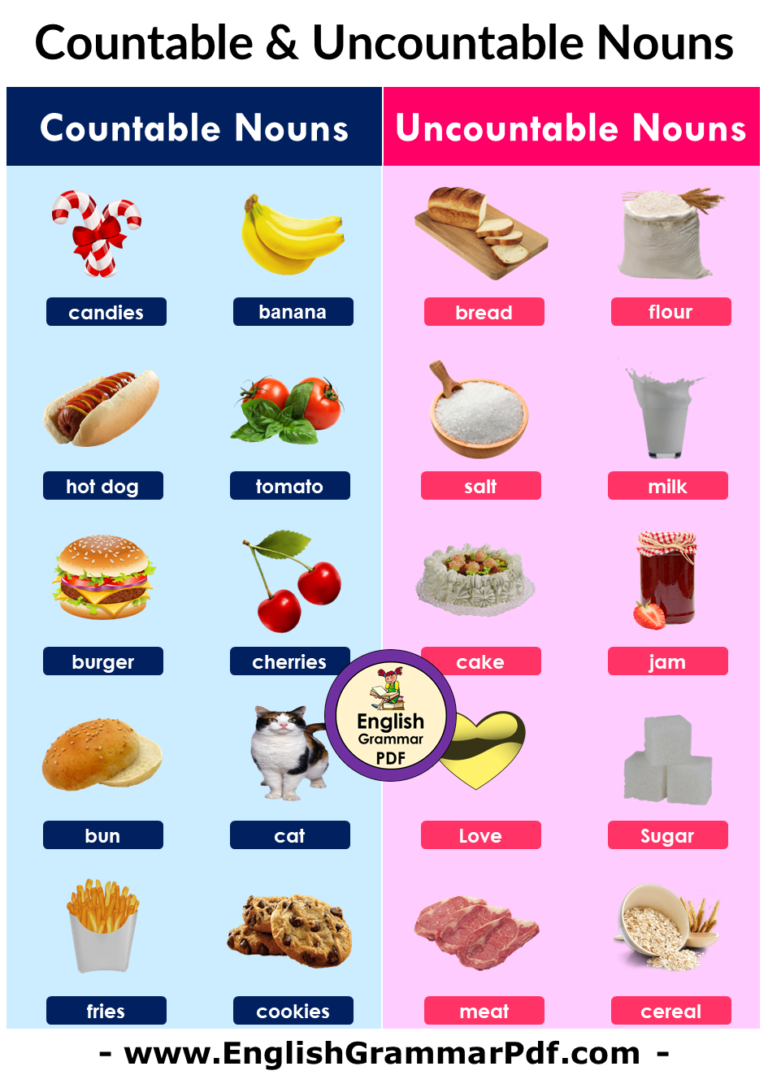
100 Countable and Uncountable Words and Examples PDF English Grammar Pdf
There are nouns that can be countable and uncountable, depending on the meaning of the word and the context of the sentence. Take the word light as an example. When I went outside, the bright light of the sun took me by surprise. They switched on the lights of the cabin. Because the light of the sun is something that cannot be counted, it's.

Countable and Uncountable nouns Uncountable nouns, Teaching nouns, Nouns
Grammar explanation. Nouns can be countable or uncountable. Countable nouns can be counted, e.g. an apple, two apples, three apples, etc. Uncountable nouns cannot be counted, e.g. air, rice, water, etc. When you learn a new noun, you should check if it is countable or uncountable and note how it is used in a sentence.
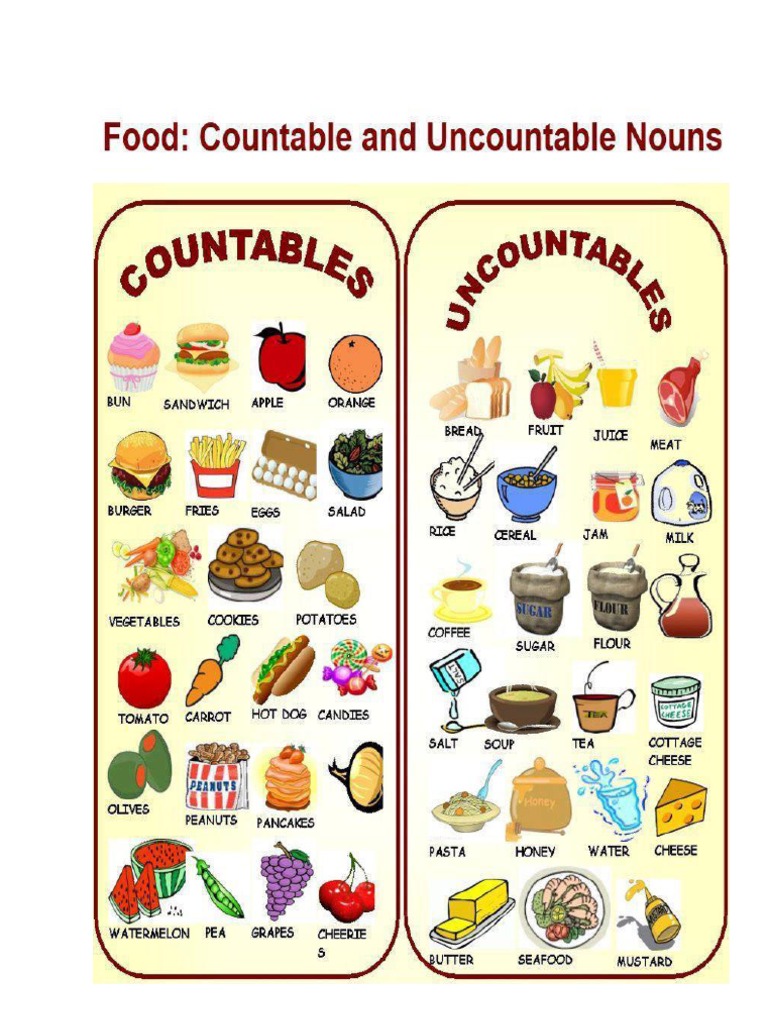
Countable and Uncountable Nouns
Use a or an before singular nouns. Use some before plural nouns and uncountable nouns in positive sentences. We don't want a test. I can see an ant. They've got some bananas. She needs some glue. Use any before plural nouns and uncountable nouns in negative sentences and questions. I haven't got any oranges.
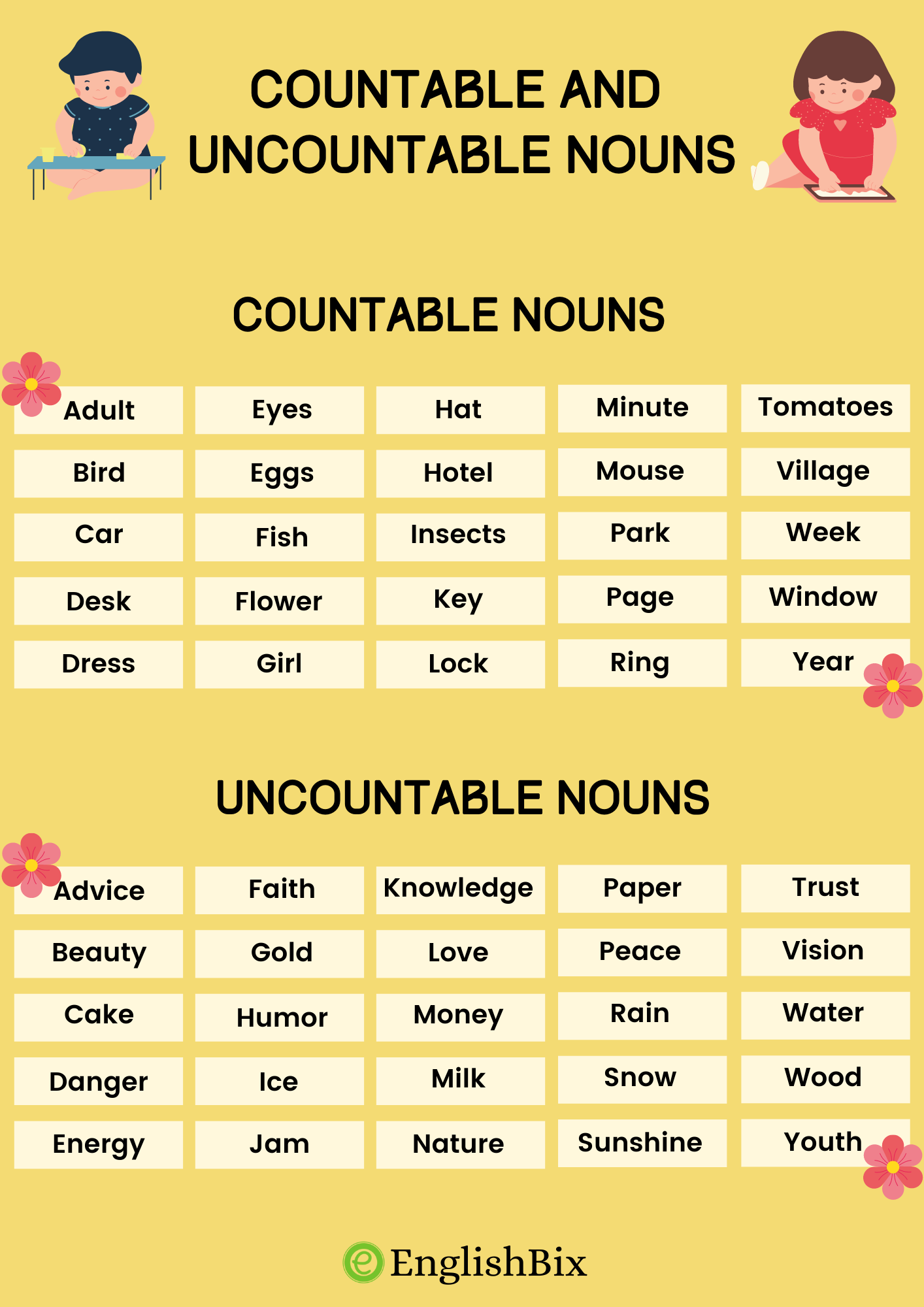
100+ Examples of Countable and Uncountable Nouns for Kids EnglishBix
Rice, soil, oil, water, advice, hair, air, pressure, blood, pain, luggage, smoke, data, etc. are a few examples of uncountable nouns. Countable and Uncountable Nouns - Learn what they are and how they are used along with examples in this article. You can also go through the list of countable and uncountable nouns for a better understanding.
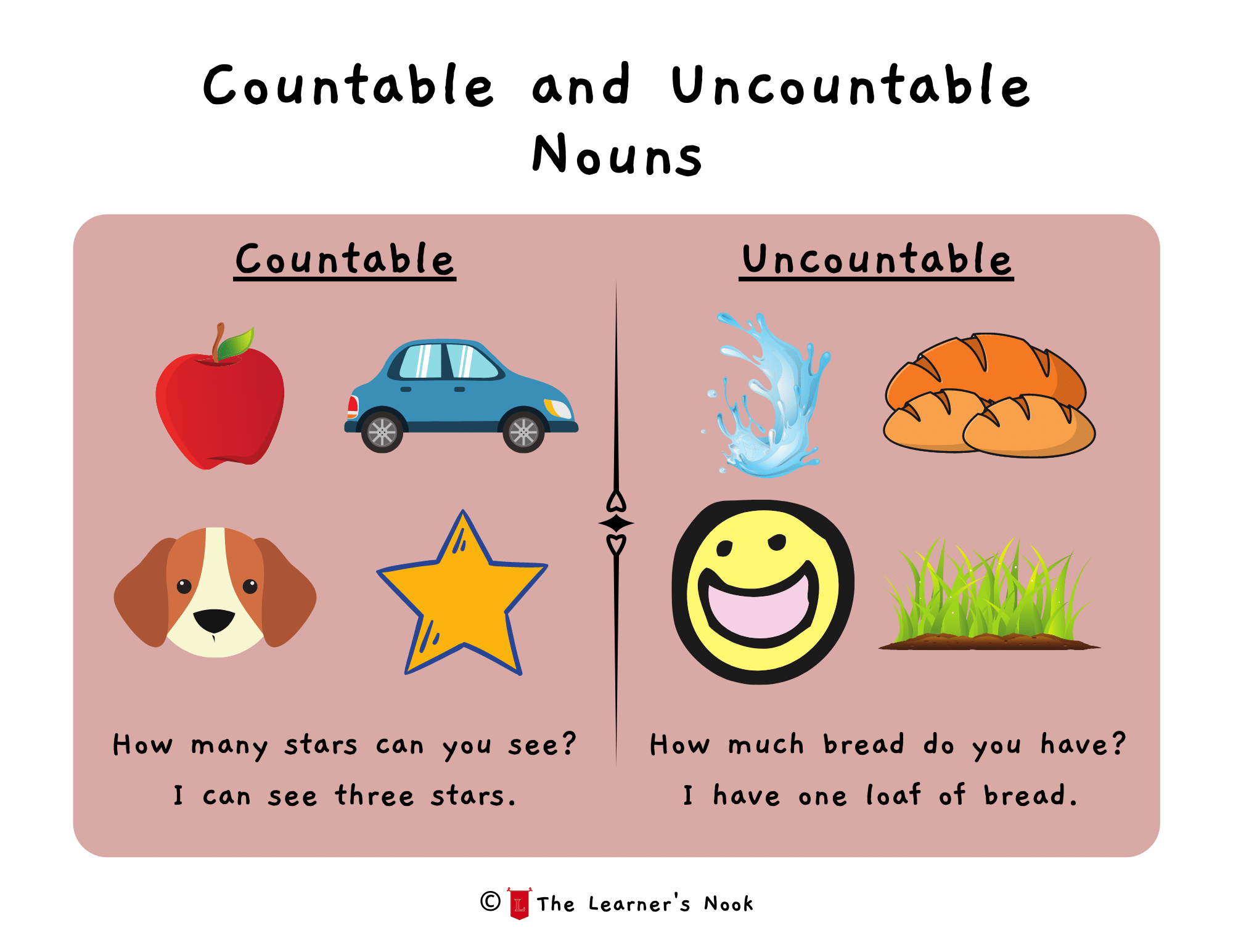
The Learners Nook
Why Countable Nouns Are Important. There are three noteworthy issues related to countable and non-countable nouns. (Issue 1) Use fewer with plurals and less with non-countable nouns. Use fewer when referring to people or things in the plural (e.g., soldiers, lawyers, dogs, pies, clouds).. A low voter turnout is an indication of fewer people going to the polls.

Countable and uncountable nouns interactive and downloadable worksheet
Riesenauswahl an Markenqualität. English Grammar Today gibt es bei eBay!
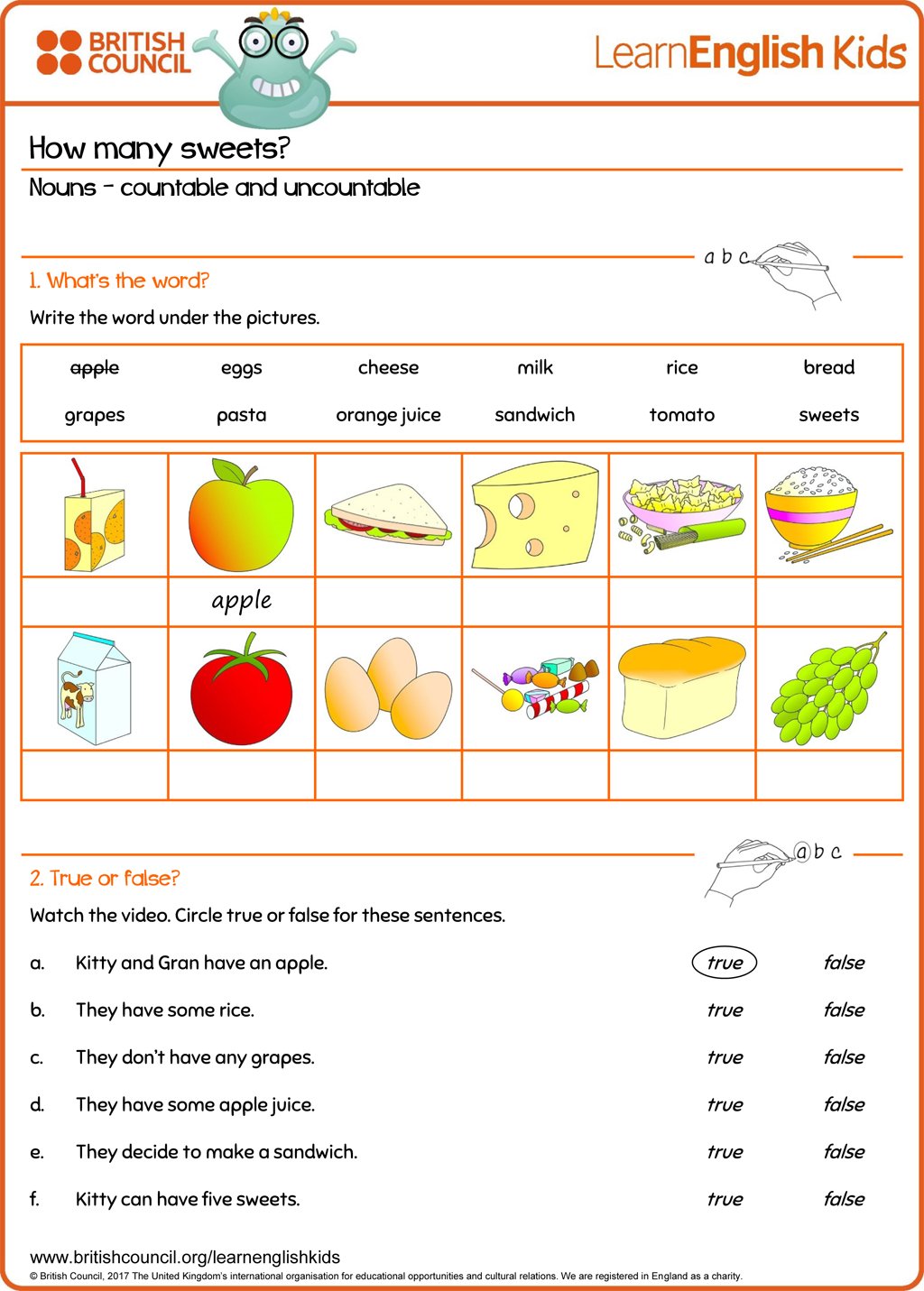
Countable And Uncountable Nouns Worksheets For Kids Unique Countable
Nouns: countable and uncountable - English Grammar Today - a reference to written and spoken English grammar and usage - Cambridge Dictionary
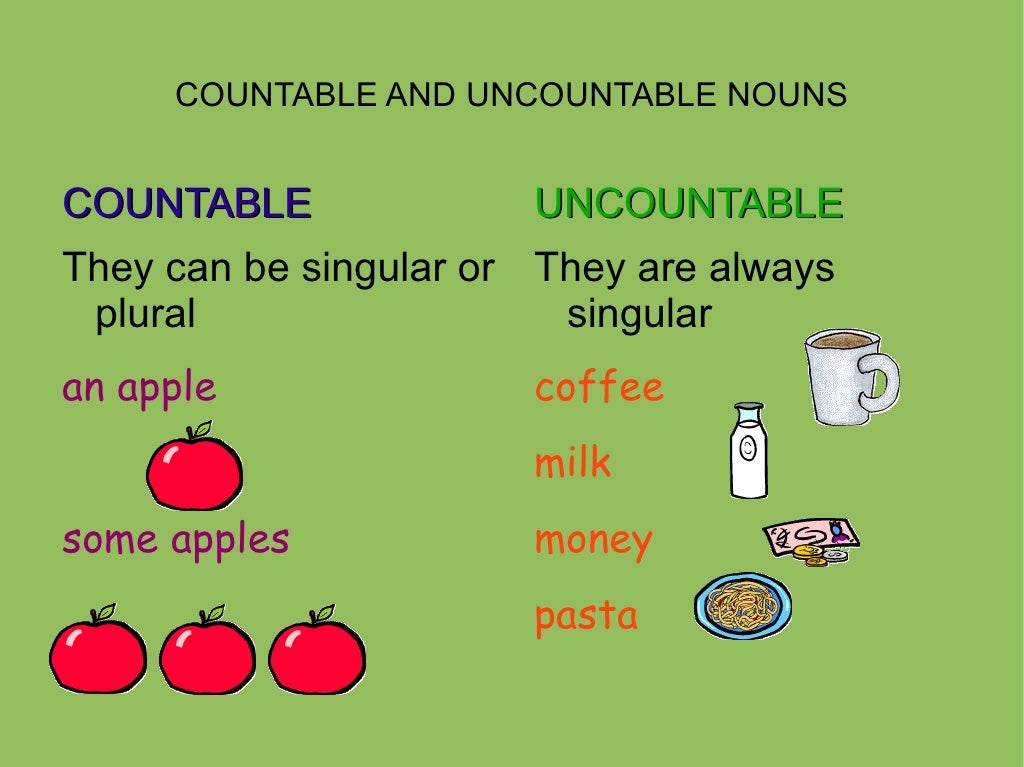
Countable and uncountable nouns
It's important to distinguish between countable and uncountable nouns in English because their usage is different in regards to both determiners and verbs. Countable nouns Countable nouns are for things we can count using numbers. They have a singular and a plural form. The singular form can use the determiner "a" or "an". If you want to ask about the quantity of a countable

Countable and uncountable noun online presentation
Join millions of learners from around the world already learning on Udemy. Find the right instructor for you. Choose from many topics, skill levels, and languages.

Nouns that Can Be Countable and Uncountable Useful List & Examples
Expressing quantities of countable and uncountable nouns. In English, we use different quantity words: With countable nouns, you can use many, a few, fewer, the fewest: How many brothers do you have? I have a few books in my backpack. There are fewer people here today than there were yesterday. Out of the whole team, John made the fewest mistakes in his work.
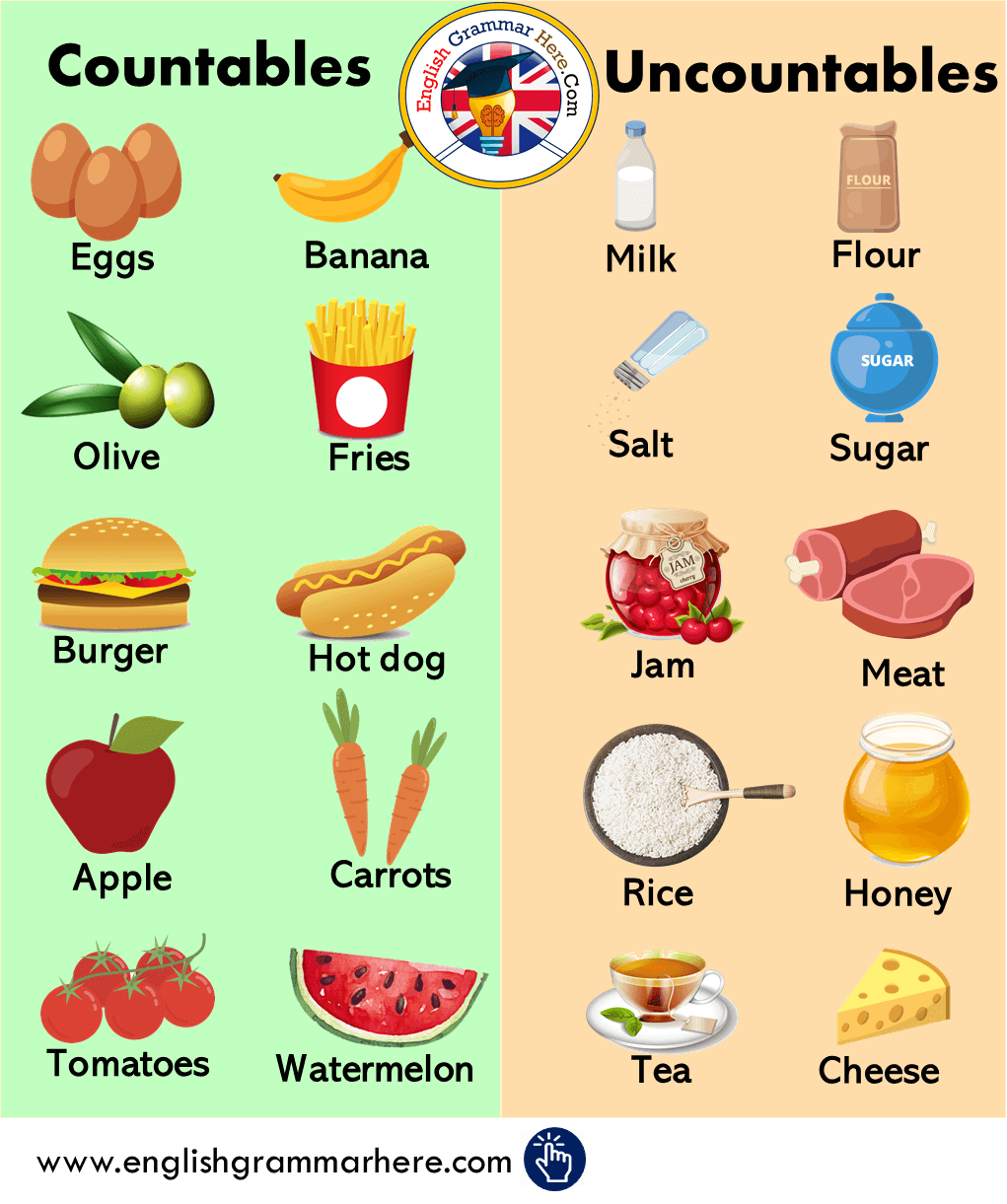
Countable and Uncountable Noun List in English English Grammar Here
In short, uncountable nouns can become countable when the noun is in a container. For example: some sugar — a bag of sugar. some water — a bottle of water. some cereal — a bowl of cereal. Thus, you can't say 'two waters' but you can say 'two bottles of water'. Try to drink at least eight glasses of water each day.

Time Countable Or Uncountable / Nouns that Can Be Countable or
Examples of nouns that can be countable or uncountable; Type of noun Uncountable Countable Other examples; Abstract concepts: He rarely feels fear.: A fear of spiders is known as arachnophobia.: Concepts can often be countable or uncountable: weight, love, courage, strength, time, beauty, pressure, vision, business.
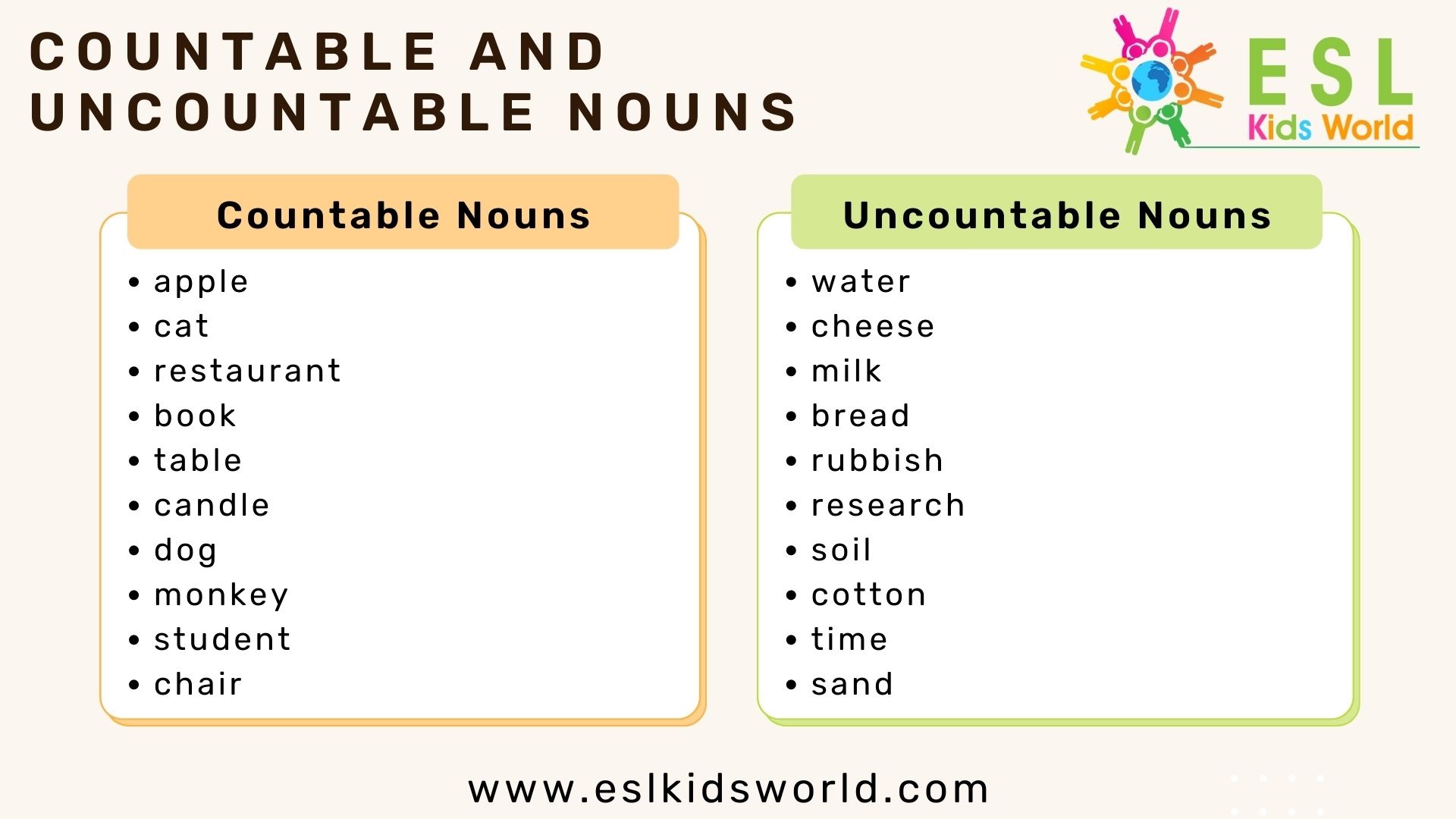
Countable and Uncountable Nouns Countable or Uncountable Noun? ESL
Uncountable nouns are for the things that we cannot count with numbers. They may be the names for abstract ideas or qualities or for physical objects that are too small or too amorphous to be counted (liquids, powders, gases, etc.). Uncountable nouns are used with a singular verb. They usually do not have a plural form.